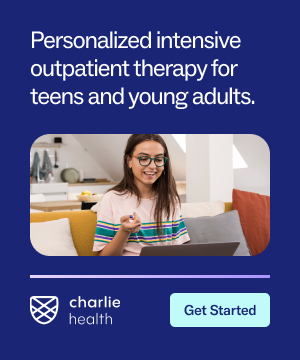










In social situations or large groups, some people experience anxiety. We often associate social anxiety with introverts; people who generally prefer to be alone and stay away from groups. Extroverts, on the other hand, enjoy being around people and socializing. However, extroverts too can experience social anxiety.

Extroversion is a personality trait commonly associated with outgoing, social, and loud people. Introversion is the opposite, commonly associated with people who are quiet, reserved, and keep to themselves. We often assume that a person must be one or the other, but is that true?
These traits should be thought of as two ends of a spectrum from the most outgoing or social person to a very isolated or reserved individual. Not all extroverts and introverts have the same traits, and some may have different levels of comfort in social situations. People may lean towards extroversion or introversion, but most people have tendencies that are attributed to both.
Extroverts tend to be sociable, warm, assertive, active, excitement-seeking, and have positive emotionality.[1] Every extrovert differs in their degrees of these traits. For example, a person may love going to parties but hate public speaking. This person would likely score high on the sociable and excitement-seeking spectrum but lower on assertiveness. Another extrovert may feel completely at ease in front of a crowd but struggle to make conversation at a party.

To evaluate if you lean towards extroversion or introversion consider what brings you joy and energizes you. For example, if you prefer to go out for drinks with friends after a hard day at work, you may lean towards extroversion. If you prefer to go home and relax on the couch in comfy clothes, you may lean towards introversion. Everyone likely enjoys both these activities at different times; however, this simplified example can help you decide where you fit on the spectrum.
Social anxiety is a fear of social situations. It’s usually associated with a fear of being judged. People with social anxiety disorder often avoid social situations. When social situations are unavoidable, they experience anxiety symptoms such as sweating, heart palpitations, shaking, or shortness of breath.
Social anxiety is a disorder that develops over time and could result from environmental and genetic factors such as a bad social experience, early childhood trauma, or a family history of mental health issues. It is typically treated by a psychotherapist through cognitive behavioral treatment.
So, back to our original question, can extroverts struggle with a social anxiety disorder? The answer is yes. Any person, regardless of personality traits, can develop a social anxiety disorder.
However, for extroverts, it is less common. Studies suggest that extroverted individuals are less likely to develop social anxiety disorder if they have high scores in the positive emotionality facet of extroversion.[2]
Positive emotionality is the tendency towards positive moods, such as happiness, excitement, confidence, and joy. People who tend towards these moods generally have lower levels of social anxiety and depression. Positive emotionality can protect people by reducing the risk of developing social anxiety.[3]
While extroverts may develop social anxiety disorders, it is less likely. However, social anxiety can become a real issue for extroverts if they struggle to engage in social situations.
Because extroverts feel pleasure from social activities and events, social anxiety could impact their mental health more intensely than introverts. Introverts struggling with social anxiety can still engage in the reserved and quiet pastimes that please them, despite their struggles.
Whether you are an introvert or an extrovert dealing with social anxiety, there are treatments. Through psychotherapy treatments, a therapist can help you work through this disorder so that you can participate in social situations anxiety-free.
References